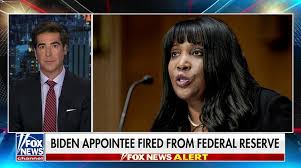
Introduction
In the annals of American criminal history, few cases have captivated the public imagination quite like the Menendez brothers’ case. Erik and Lyle Menendez, two affluent young men from Beverly Hills, shocked the world in 1989 when they brutally murdered their parents, José and Kitty Menendez, in their lavish home. The crime, subsequent trials, and decades of media coverage have turned the brothers into both infamous criminals and tragic figures, sparking debates about wealth, privilege, abuse, and justice.
This article provides a comprehensive, 4,000-word exploration of Lyle Melendez, the elder of the two brothers. From his early life and relationship with his family to the chilling night of the murders, the sensational trials, his life behind bars, and his enduring presence in popular culture, Lyle’s story raises profound questions about family dysfunction, the American justice system, and the blurred lines between victim hood and culpability.
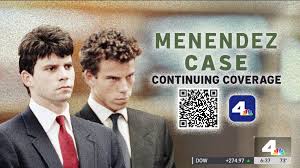
Early Life of Lyle Menendez
Birth and Family Background
Joseph Lyle Menendez was born on January 10, 1968, in New York. He was the first son of Jose Enrique Menendez, a wealthy Cuban-American executive, and Mary Louise “Kitty” Menendez, a former beauty queen. Lyle’s birth marked the beginning of a seemingly picture-perfect family.
José, who had emigrated from Cuba and worked his way up in corporate America, embodied the immigrant success story. By the late 1980s, he was an executive at LIVE Entertainment (later renamed Artisan Entertainment). Kitty, once vibrant and ambitious, struggled with depression and a sense of unfulfilled in her later years.
Lyle’s younger brother, Erik, was born in 1970. The family eventually settled in Beverly Hills, California, epitomise wealth and success. Yet beneath the polished exterior lay dysfunction, fear, and allegations of abuse.
Childhood and Education
From an early age, Lyle exhibited both athletic talent and behavioural issues. He attended Princeton Day School in New Jersey, where he played tennis competitively. Teachers and peers often described him as confident, even cocky, but also insecure.
Later, he enrolled at Princeton University. However, his academic career was short-lived; he was placed on academic probation and was ultimately suspended for plagiarism. This failure, combined with his father’s immense pressure to succeed, reportedly deepened Lyle’s resentment and insecurity.
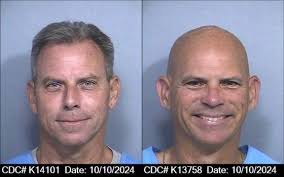
Relationship with José and Kitty Menendez
Lyle’s relationship with his parents was complicated. Jose was a strict disciplinarian, often described as overbearing and demanding. Kitty, while loving at times, was deeply troubled and allegedly turned a blind eye to family problems.
Allegations of Abuse
During their trials, both Lyle and Erik alleged that they had suffered years of emotional, physical, and sexual abuse at the hands of their parents, particularly their father. Lyle claimed José molested him from a young age, while Kitty enabled or ignored the abuse. These claims remain a point of controversy: were they genuine accounts of trauma, or desperate attempts to justify murder?
Regardless of where one stands, the Menendez brothers’ defence introduced into public discourse the taboo topic of sexual abuse within affluent families—a subject rarely discussed in the late 1980s and early 1990s.
The Murders of José and Kitty Menendez
The Night of August 20, 1989
On August 20, 1989, Lyle and Erik Melendez armed themselves with shotguns and entered their parents’ Beverly Hills mansion. That evening, Jose and Kitty were relaxing in the den, watching television.
The brothers opened fire in a scene of unimaginable violence. Jose was struck multiple times, including a fatal shot to the back of the head. Kitty attempted to flee but was shot in the leg, causing her to collapse. The brothers then fired repeatedly, leaving her unrecognisable.
The crime scene was gruesome—blood spattered the walls and furniture, and the brutality shocked even seasoned investigators.
Cover-Up and Behavior After the Murders
After the killings, Lyle and Erik attempted to cover their tracks. They claimed to have gone to the movies to establish an alibi, later returning to “discover” the bodies.
In the weeks following the murders, their behaviour drew suspicion. They went on extravagant shopping sprees, buying Rolex watches, luxury cars, designer clothes, and even investing in a restaurant. Lyle reportedly spent hundreds of thousands of dollars within months.
To many, their spending spree seemed to confirm a motive: greed and the desire to inherit their parents’ wealth.
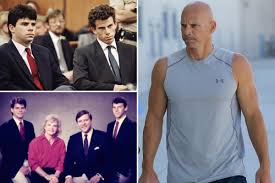
The Investigation
Initially, police considered the possibility of a mob hit, given Jose’s business ties. However, suspicion soon fell on the brothers.
Key evidence emerged when Erik confessed to the murders during a therapy session with Dr. Jerome Oziel, a Beverly Hills psychologist. Ozzie’s mistress, fearing for her safety, alerted police, leading to the brothers’ arrest in 1990.
The Trials
The First Trial (1993–1994)
The Menendez brothers’ first trial became a media sensation, one of the first court cases to be broadcast live on television.
- Prosecution’s Case: The prosecution argued that Lyle and Erik killed their parents to inherit their fortune. They emphasised the brothers’ extravagant post-murder spending and portrayed them as spoiled rich kids who eliminated their strict parents for money.
- Defence’s Case: The defence, led by Leslie Abram son, contended that the brothers acted out of fear and desperation after enduring years of abuse. Abram son argued that the killings were not motivated by greed but by self-preservation in the face of ongoing parental abuse.
The jury was unable to reach a unanimous verdict, resulting in a mistrial.
The Second Trial (1995–1996)
In the second trial, Judge Stanley Weinberg limited the defence’s ability to present evidence of abuse, ruling much of it inadmissible. This shifted the narrative toward greed rather than trauma.
The brothers were convicted of first-degree murder and conspiracy to commit murder in 1996. Both received life sentences without the possibility of parole.
Media Coverage and Public Perception
The Menendez case captured national attention for several reasons:
- Wealth and Privilege: The image of two wealthy Beverly Hills brothers murdering their parents fascinated and horrified the public.
- Allegations of Abuse: The case forced Americans to confront uncomfortable questions about child abuse in affluent families.
- Televised Trial: The first trial’s televised proceedings made the brothers household names, paving the way for other televised trials like O.J. Simpson’s.
- Pop Culture: The case inspired books, documentaries, films, and TV dramatisations, including Law & Order: True Crime – The Melendez Murders (2017).
Life in Prison
Lyle Menendez has spent nearly three decades behind bars. Initially, he and Erik were housed in separate prisons. In 2018, after nearly 22 years apart, they were reunited at the Richard J. Donovan Correctional Facility in San Diego, California.
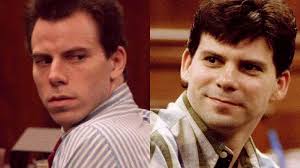
Personal Life Behind Bars
Despite his incarceration, Lyle has managed to build a semblance of personal life:
- He has been married twice while in prison. His first marriage was to Anna Ericsson in 1996, which ended in divorce. In 2003, he married Rebecca Snead, a magazine editor.
- He has maintained correspondence with supporters and advocates who believe the abuse allegations and view the brothers as victims of their circumstances.
Psychological and Sociological Dimensions
The Menendez case raises important psychological and sociological questions:
- Cycle of Abuse: Could years of alleged abuse have driven Lyle and Erik to a breaking point where murder seemed like the only escape?
- Wealth and Dysfunction: Does affluence mask and even exacerbate family dysfunction?
- Justice vs. Sympathy: How should courts weigh allegations of abuse against the crime of premeditated murder?
Legacy of the Menendez Case
The story of Lyle and Erik Menendez remains relevant decades later, not only as a sensational crime but also as a cultural mirror reflecting America’s struggles with wealth, abuse, and justice.
- Legal Impact: The case highlighted challenges in balancing defendants’ rights to present abuse evidence against concerns of jury sympathy.
- Cultural Impact: The Menendez brothers have been immortalised in documentaries, podcasts, and dramatisations.
- Ongoing Debate: Supporters continue to push for reconsideration of their sentences, arguing that abuse should have been given more weight.
Conclusion
The case of Lyle Menendez defies simple categorisation. He is both a murderer and, potentially, a victim. His actions on August 20, 1989, ended the lives of his parents in one of the most brutal ways imaginable. Yet the story behind those actions is layered with allegations of abuse, family dysfunction, and psychological trauma.
More than three decades later, Lyle Menendez remains behind bars, his life defined by one night of violence that forever altered American perceptions of family, privilege, and justice. His story serves as both a cautionary tale and a subject of ongoing debate in the realms of law, psychology, and media.

